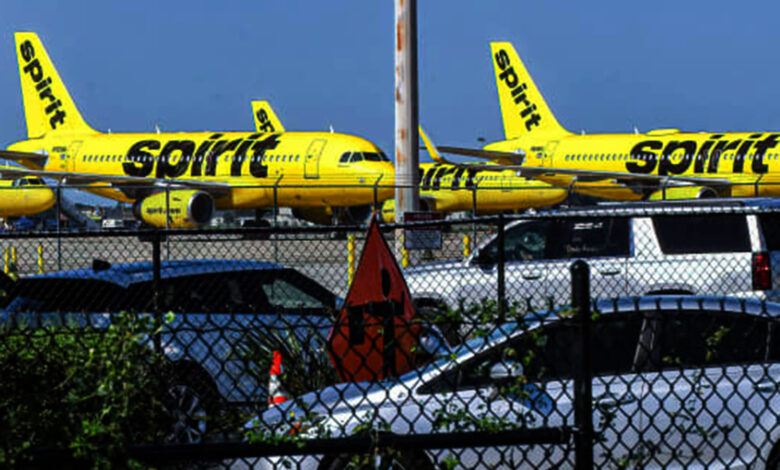$6.6 billion merger, Frontier and Spirit will merge to form the fifth-largest airline in the United States.

In a $6.6 billion agreement, Frontier Airlines and Spirit Airlines, the two largest low-cost airlines in the United States, have agreed to merge in a $6.6 billion agreement, creating the country’s fifth-largest airline.
The merger provides Frontier Airlines, located in Denver, a 51.5 percent share in the new airline. Spirit shareholders would get 1.9126 shares of Frontier plus $2.13 in cash for each share they own, for an implied value of $25.83 per share, a 19% premium over the value of Spirit shares at the end of last week, according to the businesses.
Over the weekend, the boards of both firms authorised the transaction.
Frontier Chairman Bill Franke will lead the merged firm, which “would establish America’s most competitive ultra-low ticket airline for the benefit of consumers,” according to Franke.
The firms did not reveal the combined carrier’s new name, CEO, or the location of the airline’s headquarters. After the acquisition complete, which is expected in the second part of the year assuming regulatory and shareholder approval, a committee chaired by Franke will address those issues.
The transaction is the latest in Franke’s career of investing in and running low-cost airlines throughout the world, including Spirit. Indigo Partners owned an interest in Spirit from 2006 until 2013, with Franke acting as head of the airline until Indigo sold its investment in the service. Indigo purchased Frontier Airlines from Republic Airways for $145 million shortly after that.
Since then, Denver-based Frontier has progressively grown its route network with new destinations and extra flights, frequently targeting areas where other carriers, such as Southwest, have a significant presence. In nearly every scenario, Frontier begins with cheap tickets in order to create an advantage with budget-conscious consumers.
Spirit has, likewise, been rapidly expanding over the previous decade and intends to keep doing so if joined with Frontier.
According to the Department of Transportation, Spirit and Frontier accounted for 2.8 percent of revenue passenger miles flown by US carriers in 2013. Their total market share had nearly doubled to 5.4 percent by 2019, while the four major US airlines, American Airlines, Delta, United, and Southwest, controlled 73.9 percent of revenue passenger miles.
On theory, a Spirit/Frontier merger makes sense because both companies fly exclusively Airbus planes and neither dominates a specific market. Nonetheless, the Biden administration has made it obvious to businesses that it would investigate possible mergers considerably more actively than the Trump administration.





